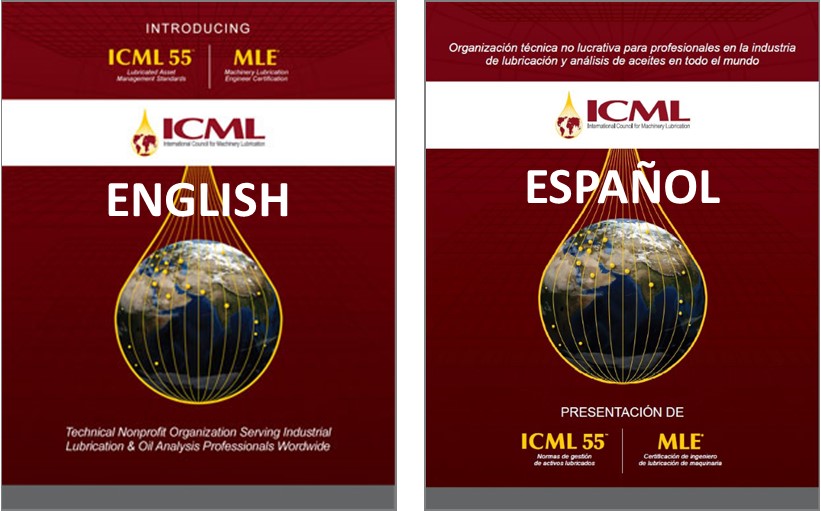Matt Adams, Noria Corporation, June 3, 2020 | I have spent the better part of the last decade working in the field of Predictive Maintenance (PdM) and, like many who have spent time polishing their craft, I have come to the conclusion that the more time I spend in this arena the more I realize I have much left to learn.
The initial seven years in this practice I worked in the power generation industry, laboring in most of the PdM disciplines like vibration, lubrication, infrared, motor testing, motion amplification, and ultrasound. Two years ago, I switched gears and decided to specialize in machinery lubrication through program development, content structure, general consulting, and training with Noria Corporation. When conducting training sessions, a key point I drive home on day one is the fact that several of these technologies–specifically lubrication and oil analysis–are extensive in detail and, unfortunately, can take a long time to master.
As our reliability or lubrication-specific programs begin to grow, it is imperative that we as individuals grow with them.
While I still don’t consider myself to be a “master” in any of these areas, I have found there to be three driving forces that have and will continue to aid in my development. These sources include advancement in training and certifications, understanding plant component makeup and historical failures, and reaching out to reliability peers as resources if and when available.
1. Training and Certification
As I began my journey into this field, one of the preliminary objectives established was to ensure that I had a regimented path forward that included specific training and certification. Internally, there was organized classroom training provided in areas such as system, component, and safety training. When it came time for specific, formalized training within the realm of predictive maintenance, this was often conducted externally. Although there is invaluable information to be gained through in-field training and one-on-one coaching (and I will speak to that a little later), I feel it is imperative to receive training and certification from external resources, as well. This effective endeavor ensures individuals not only receive site or industry-specific education for best practices and lessons learned in a specified field, but also works to establish a holistic, all-inclusive understanding from set standards developed over time and executed through subject matter experts often with previous experience in several industries and manufacturing.
Competition between contending companies today is as fierce as it has ever been; therefore, effective and specialized training is often used to gain the upper edge. Becoming stagnant and failing to adapt to new information, technology, and available resources can often lead to the degradation of an organization’s future. This holds true as well even in area-specific niche training such as machinery lubrication and oil analysis. Often times, in the initial conversation with customers here at Noria, it is imperative for potential clients to establish non-disclosure agreements to ensure that their rival competitors do not gain access to their precise methodology for success. Formalized training not only leads to a stronger overall company, but also builds the foundation of the individuals who operate it on a day to day basis. Culture is a word that gets tossed around within all levels of the organization and is often predicated on the habits and behaviors of the people. Ensuring the individuals within your site are obtaining sound, effective training continues to drive home what is deemed important and echoes the creation of what site-specific culture will look like.
Every so often you come across an individual who is able to assist you in your journey. And if you are lucky and humble enough to listen, you might find a new potential source of information as well as a lifelong friend along the way.
While not always necessary in every training event you attend, certifications do play a significant role within the realm of formalized training. Certification is often vital because it assesses and validates the characteristics that are expected in accordance with set standards. It should be a key objective when developing your company’s training strategy to ensure it is aligned with industry standards. The world of machinery lubrication and oil analysis is much like any other profession in that the training provided to the individuals should include some level of in-field training, one-on-one coaching, and informal as well as formal training. While the first three levels of training mentioned are frequently completed internally through qualification processes, there should often be some external training that is accompanied by certification.
One of the most notable certification bodies is the International Council for Machinery Lubrication (ICML). A key aspect of this organization is to certify individuals in the areas of lubrication technicians, lubrication analysts, laboratory technicians, as well as lubrication engineers. I feel safe in stating that, while the experience I have gained working in industries provided a solid understanding of predictive maintenance, I would not be where I am today without the formalized training and associated certifications that I received during my journey.
2. Plant Equipment and Its History
One area that can often be overlooked when developing a respected reliability employee is the understanding of the plant equipment and the historical failures related to them. As I mentioned earlier in the training section, although I was not involved in the operation of the plant, the training department and management team found it valuable for me not only to understand my specific forte within predictive maintenance, but also to obtain a sound, basic understanding of the systems and components of the plant. This meaningful information aided in my understanding of component makeup, criticality, and overall necessity–not only from a maintenance perspective, but from an operational one as well.
Becoming stagnant and failing to adapt to new information, technology, and available resources can often lead to the degradation of an organization’s future.
During my first year or two within the department I was constantly questioning my evaluation of equipment and whether it was correct or worth currently pursuing. Incorrectly identifying failures in the field can be a major setback for yourself and sometimes your department. It increases potential for unnecessary downtime, needless maintenance work, and apprehension in those working around you. I was fortunate early on to have other experienced individuals apprise me of such normal anxieties, and I was able to lean on them and cross-reference possible concerns prior to writing work requests. After a couple of years of gaining valuable practice myself from training and field experience, I was better able to deduce failures and had noticeably more confidence in voicing my concern for equipment abnormalities.
One key piece to the failure identification puzzle I found particularly useful after the first year or two was the understanding of equipment failures, specifically when and where they occurred. My personal experience, operator and maintenance feedback, and previous Computerized Maintenance Management System (CMMS) entries paid dividends throughout this process. One, I was better able to gain additional confidence that I was on the right path towards correctly identifying issues at the plant. Two, we were able to be proactive in nature and proceed with eliminating some issues from reoccurring. This was a great “lessons learned” practice I have taken with me during my transition from different plants and companies throughout my career.
I might imagine your work experience is similar to mine; when we begin to review where we spend our time and effort at a site, we realize we have habitually been working, or firefighting, the same pieces of equipment. As our reliability or lubrication-specific programs begin to grow, it is imperative that we as individuals grow with them. Understanding these recurring issues and addressing their root causes (as opposed to mere symptoms) allows more available time to improve our program rather than just maintain it. Finding these recurring events helped my self confidence in failure deduction. Utilizing them to improve our program, I began to really appreciate what it means to work in the field of equipment reliability.
3. Peer Resources
The final driving force for core competency I have found noteworthy is the use of peer resources. I alluded to this in the last section but feel it needs to be expounded upon. While this aspect of development is not always readily available within the plant or company, some level of it can be gained through interaction during conference networking, lubrication laboratory communication, and social media outreach.
I was very fortunate when I began my career in predictive maintenance that I worked daily with two individuals within the department who aided in my technical growth, most notably in the concentrated areas of vibration and oil analysis. These experienced individuals had an immense background in mechanical maintenance and equipment reliability and chose to take the time to show me the intricate details of what was needed to succeed in this craft. Without a doubt, these individuals provided direction for my career path and are a large reason I love what I do today. I have full confidence that if I run into issues tomorrow, I could reach out to them and they would be there willing and able to assist.
While these two were the first set of peer resources I ran across, they have not been the last. Every so often you come across an individual who is able to assist you in your journey. And if you are lucky and humble enough to listen, you might find a new potential source of information as well as a lifelong friend along the way. If you can cultivate resources like these people throughout your journey, I truly urge you to make the connections. It should go without saying that hopefully one day I can pay back the kindness, patience, and detail to excellence to other reliability peers that these people once provided for me.
Conclusion
Developing as an individual in the realm of predictive maintenance, specifically lubrication, is an enduring process. While the task of becoming a master in this field may appear to be daunting at times, there is light at the end of the tunnel. Looking back on how I got to where I am today, I reflect on all of the training, troubleshooting, and friendships I have gained along the way, and it makes me proud to work in such a challenging and ever-changing field. As I continue to mature, I will always plan to include the advancement in training and certifications, to better understand plant component makeup and historical failures, and continue to reach out to reliability peers as resources. I hope your reliability journey brings you great challenges and even better results.
Image built from originals by Miguel Á. Padriñán from Pixabay







